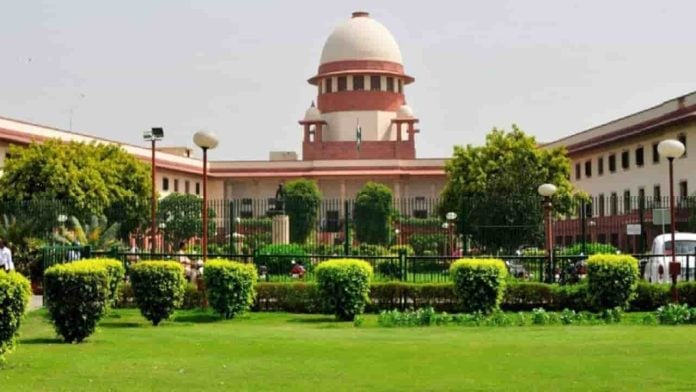The Supreme Court on Tuesday came down heavily on the State of Manipur for their apparent ‘failure’ to control the law and order situation during the ethnic clashes in the hill state, which led to numerous atrocities against women and people from a certain community, as per media reports.
The Bench led by Chief Justice of India D.Y. Chandrachud, while castigating the state for ‘tardy’ investigation, directed the DGP Manipur to remain personally present in the courtroom on August 7, in order to help the Court to determine the nature of investigation.
Taking note of considerable lapse between the occurrence of incidents and registration of FIRs, besides fewer recording of witness statements and minimal arrests, the top court of the country further pulled up the Manipur government and the state police department for their inaction.
Noting that around 6,500 FIRs were registered over the ethnic clashes in Manipur, the Supreme Court discussed with Solicitor General Tushar Mehta on segregation of cases, so as to ensure that neither the Central Bureau of Investigation (CBI) nor the state police were overburdened.
Stating that transferring all cases to CBI would render the national agency dysfunctional, the Apex Court said it had some suggestions in mind on how the investigation may be guided.
The Bench suggested formation of a board-based judicial committee comprising retired judges of High Courts to examine the allegations and cases.
It said the committee would first decide on remit such as relief, compensation and rehabilitation. It would also ensure a fair investigation and recording of statements under Section 164, irrespective of where the victims were currently placed.
The Apex Court was today apprised that 6,496 criminal cases were registered in the state over the recent violence, as on July 25, 2023. It was further informed by way of official statistics that 150 deaths have taken place till June 9 and over 500 persons have been reportedly injured.
It further took note of 11 first information reports (FIRs), which were registered with allegations of violence against women and children and of seven arrests, which have been made so far in such cases.
The Bench expressed its dissatisfaction over the fact that the material disclosed so far was inadequate, since there was no disaggregation of 6,500 FIRs by the category of offence alleged.
It directed the state government to carry out the process of disaggregation and inform the Court on how many FIRs dealt with murder, rape, arson & looting, destruction of house property, outraging modesty of women, destruction of places of religious worship, and grievous hurt.


